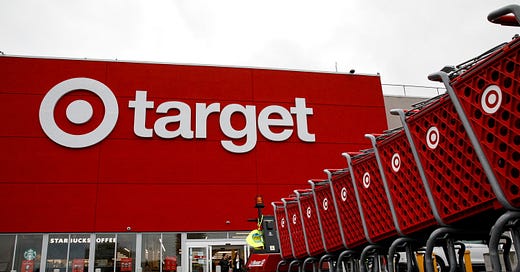Bud Light 2.0: Is Target Virtue Signaling?
In recent years, corporate social responsibility has become a cornerstone for businesses worldwide. Companies are increasingly eager to demonstrate their commitment to various social, environmental, and cultural issues. However, when such initiatives intersect with polarizing societal discourses, they can sometimes stir controversy, as we've recently seen with Target's 'Tuck Friendly' Collection and Bud Light's collaboration with transgender influencer Dylan Mulvaney.
In early April, Bud Light partnered with Dylan Mulvaney, a transgender woman, as part of a promotional campaign. This sparked backlash from some sectors of society, leading to calls for a boycott of Bud Light and temporary dips in the brand's sales1234. While it is essential to note that boycotts often have limited impact on sales and are typically short-lived5, the Bud Light incident illustrates the potential business risks associated with contentious social issues.
Target's 'Tuck Friendly' Collection has attracted similar controversy. The collection, designed to cater to the transgender community, has been met with criticism from those who believe it promotes transgender ideology to children, thus raising questions about the appropriateness of such marketing strategies in light of potential societal and business implications. Fox News has even come out with their top Anchor Laura Ingraham even stating on her show ‘The Ingraham Angle’ on Tuesday Night that Mothers have reached out to here via text messages and stated “We’re done!, We’re done with Target. We’re not going anymore.” It seems as though this is a possible outcome similar to that of Bud Lights. It seems this is a way for Target to virtue signal to the American Populace.
Critics argue that products like the 'Tuck Friendly' Collection could potentially influence children's understanding of gender norms and identities. They suggest that this might confuse children or pressure them into questioning their gender identities prematurely. It is important to note, however, that these concerns are not universally accepted. Many experts in psychology, pediatrics, and gender studies assert that exposure to diverse gender representations does not 'cause' children to become transgender but instead can create a more inclusive and understanding society.
Nonetheless, the controversy surrounding such products cannot be ignored. Just as Bud Light faced backlash for its partnership with Mulvaney, Target could potentially face similar consequences. If significant segments of their customer base feel alienated by such initiatives, these companies could experience a temporary decrease in sales or, in extreme cases, a boycott.
However, it's crucial to remember that the overall impact on a company like Target or Anheuser-Busch InBev (Bud Light's parent company) might not be as drastic as one might assume. Anheuser-Busch InBev, for instance, despite the controversy, remains a $100 billion company with its stock trading relatively stable67. Similarly, Target, being a diversified global corporation, may not experience a substantial overall impact.
In conclusion, the controversies surrounding Bud Light and Target's 'Tuck Friendly' Collection underscore the complex interplay between corporate social responsibility, consumer sentiment, and business implications. We’ve seen the public backlash with the Bud Light situation. Their stocks took a dip and their products remained stacked on shelves. As i’m writing this, Target stock price is at a comfortable $147.16 a share. Will Target see the same backlash in the weeks to come? As societal norms continue to evolve, corporations will need to navigate these complexities carefully. While it is important for businesses to respect and cater to the diverse needs of their customers, they must also remain aware of the potential repercussions of their actions on different segments of society and their bottom line.




